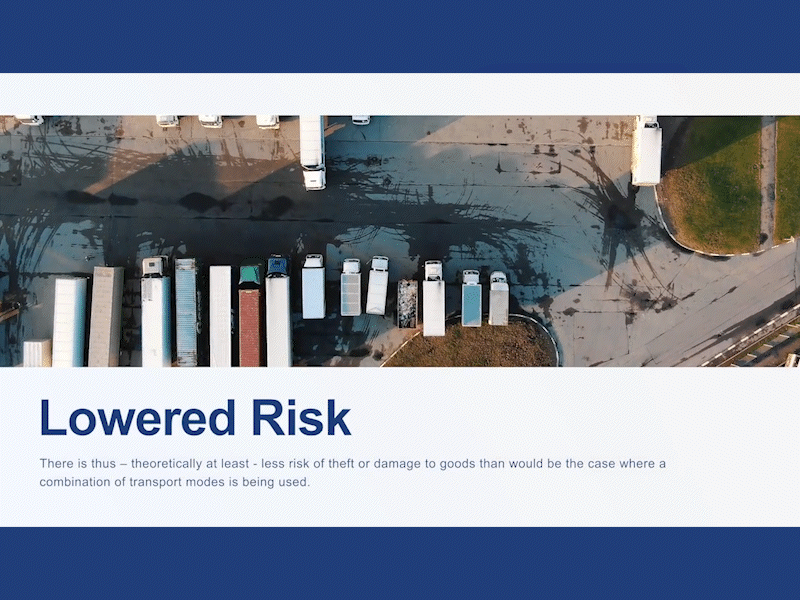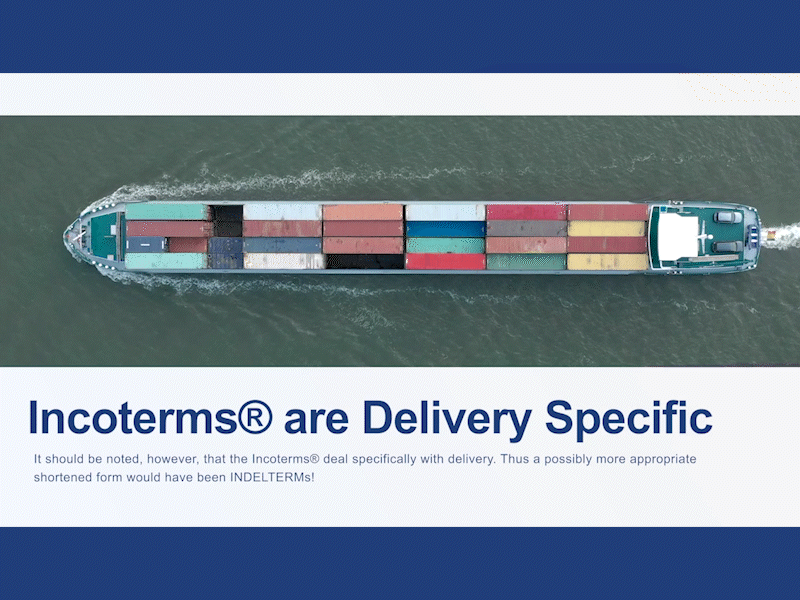As we explained in our previous Incoterms® article, the ICC’s Incoterms® rules have changed over the years. The ICC reviews the Incoterms® rules more or less every ten years and currently promotes eleven Incoterms®. Each Incoterm® has a unique allocation of risk, cost and responsibility for both buyer and seller. The changes made to the Incoterms® rules have primarily been in response to developments in the international transport landscape. A significant development in how goods are delivered internationally has been the introduction of multimodalism. This article looks at multimodalism and its influence on the Incoterms® rules.

Multimodalism
Multimodalism is the process of providing a dedicated door-to-door cargo distribution service which involves more than one mode of transport. The entity offering such a service is generically referred to as a multimodal transport operator. Multimodal transport operators are often freight forwarders who assume the role of the carrier. A multimodal operator issues a single multimodal transport document, hires space aboard various carriers and assumes responsibility for the safety of their client’s cargo throughout transit to the agreed destination.
Multimodalism and the Introduction of Multimodal Incoterms®
In the 1960s and 1970s, the international transportation landscape developed to include multimodalism and containerisation. It became possible to utilise a door-to-door cargo distribution service and containerise your cargo. However, the advent of containerised and multimodal transport created shortcomings in the Incoterms® rules. In the 1980s, the ICC introduced three new Incoterms®, i.e. FCA, CPT and CIP, to address the shortcomings of the FOB, CFR, and CIF Incoterms® rules which were only applicable to ocean transport.
Multimodal Incoterms® and the Challenges they Address
The introduction of multimodal Incoterms® aimed to address the challenge of allocating the cost of different legs of the journey to different parties under multimodal transport. A multimodal transport operator provides a door-to-door service and, thus, quotes their freight based on a ‘through rate,’ i.e., the cost of the entire journey. Multimodal terms such as FCA, CPT and CIP have resolved this problem. Under a multimodal Incoterm®, the total cost of the main international carriage lies either with the seller or the buyer depending on which of the terms is selected.

There are numerous nuances and essential factors to consider when working with Incoterms®, too many to summarise in a single article. Trade Forward Southern Africa, in collaboration with the International Trade Institute of Southern Africa, has created a free and comprehensive online training course that provides training on all aspects of Incoterms®, including understanding the critical points of FOB, CIF and CIP. Click the links below to sign up for free and get started.
To sign up to the School of Export CLICK HERE.
If you already have a profile, CLICK HERE to login to begin the module.










Leave a Reply